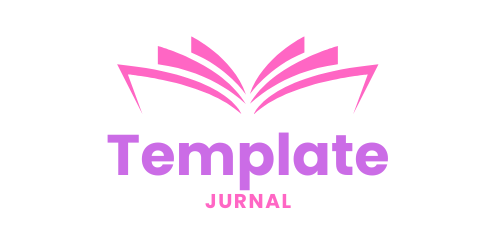JUAL BELI PAKAIAN SEKOLAH DALAM PERSPEKTIF EKONOMI SYARIAH DI PUSAT NIAGA PALOPO
DOI:
https://doi.org/10.24256/joins.v2i2.1478Abstract
                                                          ABSTRACT
This study discusses the buying and selling system implemented by school apparel traders at the Palopo Commercial Center and the Islamic Sharia view of buying and selling school clothes at the Palopo commercial center. The purpose of the research conducted by the author is to study and understand the trading system that is in the trade center of Palopo, and to study and understand the views of Islamic law. The results of this study can add reading references for all parties who need both students and lecturers. The data obtained in the discussion of this thesis is through field study research and library research, namely data collection conducted directly in the field (research objects) or sellers and buyers in the palopo commercial center. This study uses qualitative research, the informants are sellers and buyers of school clothes. Data collection techniques used are observation, documentation, and interviews.
Based on the research results obtained in this study is the trading system in the traditional Palopo trade center, meaning that as usual first of all buyers come to school clothes traders to look around, after finding clothes that are considered suitable, after being checked and tried, then turn to the problem of price bargaining, when between the two parties have agreed on the price determined followed by the handing over of the object of sale and purchase namely school clothes and some money
as a medium of exchange. The seller also provides good service to customers who have come to the store
or their place of business. The seller often reminds of the good things when there is a buyer who wants to buy school clothes by distributing goods that are not in accordance with the capital and profits obtained by the seller. The buying and selling process in the Palopo commercial center does not harm the parties and there is no element of ghararar cheating and coercion in buying and selling.
 Keywords: Buying and Selling, Market.
 Abstrak
 Penelitian ini membahas sistem jual beli yang diterapkan oleh pedagang pakaian sekolah di Pusat Niaga Palopo dan pandangan syariat Islam tentang jual beli pakaian sekolah di pusat niaga palopo. Tujuan penelitian yang dilakukan oleh penulis adalah untuk mengkaji dan memahami sistem jual beli yang ada di pusat niaga palopo, dan untuk mengkaji dan memahami pandangan syariat Islam. Hasil penelitian ini dapat menambah referensi bacaan bagi semua pihak yang membutuhkan baik mahasiswa maupun dosen. Data yang didapatkan dalam pembahasan skripsi ini adalah melalui riset kajian lapangan serta riset kepustakaan, yaitu pengumpulan data yang dilakukan secara langsung di lapangan (objek penelitian) atau penjual dan pembeli yang ada di pusat niaga palopo. Penelitian ini  menggunakan jenis penelitian kualitatif, yang menjadi informan adalah penjual dan pembeli pakaian sekolah. Teknik pengumpulan data yang digunakan yaitu observasi, dokumentasi, dan wawancara.
Berdasarkan hasil penelitian yang diperoleh dalam penelitian ini adalah sistem jual beli di pusat niaga palopo secara Tradisional, artinya seperti biasanya pertama-tama para pembeli datang ke pedagang pakaian sekolah untuk melihat-lihat, setelah ditemukan pakaian   yang dianggap cocok, setelah diperiksa dan mencobanya, kemudian beralih pada masalah tawar-menawar harga, ketika antara kedua belah pihak telah sepakat dengan harga yang ditentukan diikuti dengan penyerahan objek jual beli yaitu pakaian sekolah dan sejumlah uang
sebagai alat tukar. Penjual juga memberikan pelayanan yang baik  terhadap pelanggan yang telah datang di toko
atau tempat usaha mereka. Para penjual sering mengingatkan hal-hal yang baik ketika ada seorang pembeli yang ingin  membeli pakaian  sekolah dengan  mewar  barang  tidak  sesuai  dengan  modal  serta  keuntungan yang didapatkan oleh penjual. Proses jual beli di pusat niaga palopo tidak merugikan para pihak dan tidak ada unsur curang ghararar serta paksaan dalam melakukan jual beli.
 Kata Kunci       : Jual Beli, Pasar.
DAFTAR PUSTAKA
Â
Ali M Hasan, Berbagai Macam Transaksi Dalam Islam, Cet.2 Jakarta: PT. Raja GrafindoPersada, 2004 Alquran dan terjemahnya
 A Bilas Richard, Ekonomi Mikro, Jakarta: Rineka Cipta, 1992
 Athar, Sistem Transaksi Jual Beli Di Supermarket PT. Citra Sarana Sejahtera Opsal Plasa Menurut Syariat Islam, (Palopo: Skripsi,2013
 Bassam  Abdullah  bin  Abdurrahman  Ali,  Syarah  Hadis  Pilihan  Bukhari-Muslim,Jakarta: Darul Falah 2003 Departemen Agama RI,  Al-Qur’an dan Terjemahnya
 http://www.dsnmui.or.id/index.php
 Jusmalianti, Bisnis Berbasis Syariah, Cet I : Sinar Grafika Offest
 J Wegant Jerry Dkk, Research methods for business “metode penelitian untuk bisnisâ€,Ed.4, Buku II, Lakarta: Salemba Empat, 2016
 Kamus Besar Bahasa Indonesia
 Mardani, Fiqh Ekonomi Syariah, Cet .1; Jakarta: Kencana, 2012
 Mardani, Hukum Perikatan Syariah di Indonesia, Cet.1, Jakarta: Sinar Grafika, 2013
 M Fuad, Pengantar Bisnis, cet. III, Jakarta: Gramedia Pustaka Utama, 2003
 Pedoman Penulisan Karya Ilmiah ( Makalah, Skripsi dan Tesis), STAIN Palopo
 P3EI Universitas Islam Indonesia, Ekonomi Islam, Jakarta: PT. Raja Grafindo Persada
Downloads
Published
Issue
Section
Citation Check
License
Authors who wish to publish and disseminate their papers with the Journal Of Institution And Sharia Finance shall agree to the publishing rights set by Journal Of Institution And Sharia Finance Authors understand that they shall assign publication right to as part of the process upon acceptance for publication. Authors agreed that they will transfer certain copyrights to Journal Of Institution And Sharia Finance. Consecutively, authors still retain some rights to use and share their own published articles without written permission from Journal Of Institution And Sharia Finance.
Authors granted Journal Of Institution And Sharia Finance. these following rights; (1) the right to publish and provide the manuscripts in all forms and media for the purpose of publication and dissemination, (2) the authority to enforce the rights in the manuscript, for example in the case of plagiarism or in copyright infringement.
Journal Of Institution And Sharia Finance will follow COPE’s Code of Conduct and Best Practice Guidelines for Journal Editors to protect the research results and takes allegations of any infringements, plagiarisms, ethical issues, and frauds should those issues arise. The manuscript is attributed as authors' work, and are properly identified.



